Subscribe for all my updates and don't miss a thing! Sign me up!
Surviving In Jamaica | Scientists Lists Jamaica As One Of The SAFEST Places To Live During A Global Pandemic!
Sharing Is Caring! Share this awesome content with your friends now.
If you were following the news recently, you probably would have heard about a report in the UK's Sun newspaper (sometime last month) that listed Jamaica as one of 20 safest places in the world from an apocalyptic or catastrophic global pandemic (link below).
New! Take a piece of Jamaica with you💃!
Savour the memories! Now you can get your authentic Jamaican souvenir items, as well as traditional Jamaican herbs, spices and housewares on our popular e-store. Click Here to learn more.
And, if you ever need a trustworthy and knowledgeable local guide, consider booking a private tour with us!
In a nutshell, nations were rated by scientists based on 25 distinct features, but some of the key ones included physical location, natural resources and what they call, political harmony.
In total, everything that would creates a safe refuge but also resources that could help rebuild humanity.
Oh, and by the way, Jamaica is just one of five (5) countries in the Caribbean region listed. The others are Bahamas, Trinidad and Tobago, Barbados and Cuba.
So in light of the Covid-19 coronavirus, not only did I start to think how blessed we are as a country, but also developed a deeper and richer appreciation of what my fore-parents endurance, surviving in Jamaica during and after slavery.
What Do I Mean?
And what do I mean by that?
Well, I was born in a rural community in the hills of Westmoreland. For many years, in fact, until I was in high school, there was no electricity and no proper road structure, and even today, there is still no running water. That's the stuff that the rest of the world would consider, basic amenities right?
But guess what?
We (Maroons, and later emancipated slaves and indentured laborers) not only survived for over 300 years, we lived healthy and sustainable lives, despite what many would consider 'lack'.
How so? How was that even possible to be living in 'confinement' away from development and industry?
Let me share with you some of what I observed as a kid that made that possible.
How Did We Survive?
First, we are blessed naturally with the perfect climate, you can read more about the climate of Jamaica here, that was essential for almost everything else...
So first...
Food
For food...
- We ate what we grow and grow what we ate!
No rice nor flour, but we had yam, potatoes, dasheen, carrots, callaloo, cabbage, turnip, coco, banana, breadfruit, ackee, sugar cane, etc. etc.
(Read more on what our fore parents contributed to Jamaica's cuisine here) - For protein, animals were reared and domesticated for food; cows, goats, pigs, chickens, you name it.
And in the case of chickens, we had eggs abundance, as there was always a hen laying fresh eggs somewhere under a banana tree root! - The practice of food sharing was a big feature then too; on Sundays, for example, close neighbors shared their dinner.
- And yes, we never had commercial snacks, but kids had all the fruits that they ever needed, and there was always one in season!
Mango, banana, naseberry, sweet-sop, cherries, coconut, oranges, star-apple, jackfruit, pear, soursop, guava, otaheite apple, papayas, you name it, we had it. You can read more about some of our fruits here. - And water?
As I mentioned before, we had no commercial water supply, even to this day, but we had drums that we ( I like the new term been banded about) 'harvested the water' in from the roof top.
And what happens during the dry season?
We were blessed with a river that never dries! And yes, it is still there today and probably even more forceful!
And for the animals in the field, our fore-parents created water holes that stored water in the ground, usually under a big shady tree.
It would provide all the water needed for the animals. In some cases, it was even boiled and used to refresh and cook for the men in the field. - We didn't have modern refrigeration, so we improvised.
Meats were seasoned to the bone with authentic, natural grown seasonings, including our very own pimento.
And when not salted (corned) and stored in large barrels, are hung over the fireplace for the smoke to preserve it.
Those who who were kids then who are reading this will remember the tripe and pigs tail, that we'd pinch off :-)
Entertainment
No TV, Cable Nor Internet, but we had an abundance of kids' games.
These included ...
- Ring games, dandy shading, elastic band competitions, jacks, gig, hide and seek, run and ketch, race, skipping, kite flying, marble, hop-scotch, etc. Read more on traditional Jamaica games here.
- Boys, like myself, went bird shooting, caught fish, swam in the river, and played football and cricket. Cricket was a big deal then!
- In the nights, grandparents huddled the children and share folk tales, including those of brother anancy.
- Of course, there was regular get-together with family and friends too. The little dance sessions started here.
Health & Medicine
- We had our own bush medicine and there are too much to mention here, but I'll note perhaps the most popular, cerasee, dandelion, guinea hen, jack in a bush, neem, moringa, leaf of live, search mi heart, and more.
And every yard had fruit trees! In addition to the fever grass and peppermint tree!
By the way, before every new school term, we had to drink a glass of bitter wood water to cleanse the system to get ready for the new term.
- Of course, we needed no exercise program, as that was automatically built in!
There were no cars nor bikes then, so it was all foot.
In fact, many of the agriculture production was done much further away from home so we had to walk distances to the farm.
My uncle Tom, frequently reminisces on the days of going to 'mountain' to pickup fresh cows milk that was used in porridge and teas. And that, by the way, that was used to cook porridge, all milk, no water! - And in the case of excess produce, it was all foot, except in rare cases with a donkey or horse, it was also all foot to the market (and back)!
- So you can see how we got all the needed vitamin D from the sun (naturally) too right?
- For spiritual wellness, we continued our cultural and religions traditions for worship as well as established customs to support each other during the loss of loved ones (eg. nine nights, wakes etc).
Oh, and I should tell you that my great grand parents lived close to 100 years!
Of course, that setting taught me much about the simple social graces, like respecting the elderly, saying please and thanks, and quite importantly too, respect for the environment; It was built-in!
And I can go on and on, but can you see why we survived without any need for imports, major foreign exchange, international influence, and not even a '9 to 5'?
Yes, we were living basic, sustainable lifestyles and, certainly for me, didn't even realize it!
Many Rural Communities
And while I singled out my own community, it is not the only one, there are several rural communities in Jamaica that shared similarities, the very same history and the very same stories.
So my message to all Jamaicans, let's get back to our roots, reflect on how our fore parents lived and certainly take a leaf from their book.
And I am certainly not advocating that we go back to the past, but simply adopt some of those principles that allowed us to survive for centuries back then, which includes self-sufficiency and utilization of our skills as well as our natural resources.
History tells us that we did it already (we didn't even need the scientist to remind us) and we can do it again (during and after Covid-19).
Let's do it! One love!
Regards,
Wellesley
P.S. Don't keep this to yourself, our children needs to know, please share with someone now.
And What About You?
Can you relate to any of this? If you can, please share your own story here, we'd love to hear.
Otherwise, I welcome your comment below.
Your Comments!
I got some great comments from other visitors like you to this website. So now, I want to hear from YOU, your honest opinion.
What Other Visitors Have Said
Click below to see comments from other visitors like yourself...
Jamaican Fashion Designers
by Kesha Stewart | Associate Writer
See Also : Beauty in Jamaica .
Clearly, Jamaica has a culture that is revealed in the way we live all aspects …
10 Benefits And Uses of Elderberry In Jamaica
by Deon Clarke | Associate Writer
See Also : Jamaican Sorrel Drink - It's Health & Medicinal Benefits .
Elderberry (Sambucus nigra) , a …
Back to top of Surviving In Jamaica
Other Pages Related To Surviving In Jamaica
- The Jamaican Maroons
- A Summary Of My Visit To The Charlestown Maroons
- BarneySide, Westmoreland - A Quaint, Friendly Community
Sources & References To Surviving In Jamaica
- "Scientists rank safest spots to flee to if apocalyptic outbreak begins to wipe out humanity", The Sun, https://www.thesun.co.uk/tech/10050288/scientists-rank-safest-spots-to-run-to-if-apocalyptic-outbreak-begins-to-wipe-out-humanity/
- Sherlock, Phillip & Bennett, Hazel, "The Story Of The Jamaican People"
- Simpson, Joanne, M. Why Heritage, "A Guide To The Importance Of Our Jamaican Story"
- Wallace & Robinson, Creating Jamaica, Our Early Years, Carlong Publishers
- Senior, Olive, Encyclopedia of Jamaican Heritage, 2003
- Black, Clinton V. History Of Jamaica, 2005
Back To Jamaica Culture from Surviving In Jamaica
Return to Homepage from Surviving in Jamaica
New! Get My Latest Book👇🏿
|
You asked, I've answered! You no longer need to save for months or years, to enjoy paradise! I spilled the beans! sharing my top tips on finding cozy accommodations and secret gems, only the way a native could! Click Here to pick it up on my e-store and start saving now! |
See The Best Of Jamaica - In Videos!
|
My channel reaches over 140,000 subscribers worldwide and has leveraged over 11 million views, sharing, what I call 'The Real Jamaica'. Subscribe today and join our family of viewers. |
Read More ...
New! Experience The REAL Jamaica!
Book Your Private Tour here and experience Jamaica the way we (locals) do!
P.S. Didn't find what you were looking for?
Still need help?
Click Here to try our dependable and effective Site Search tool. It works!
Or, simply click here and here, to browse my library of over 500 questions and answers! Chances are someone already asked (and got an answer to) your question.

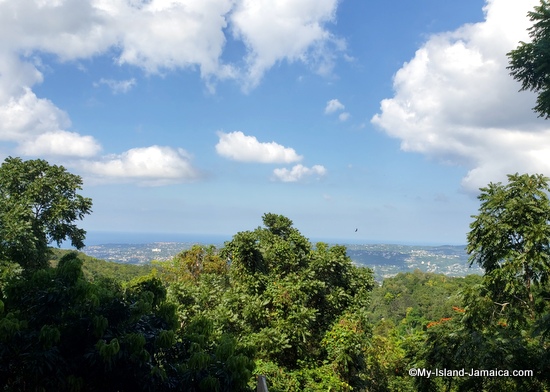
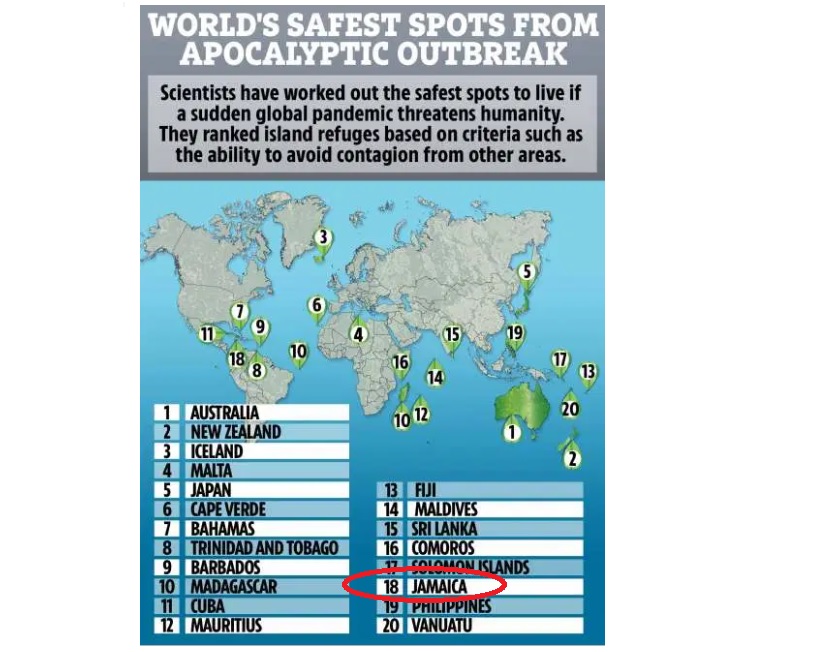
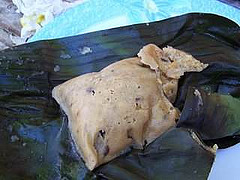
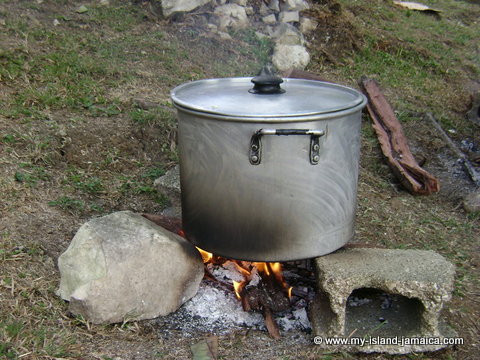
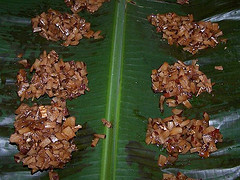
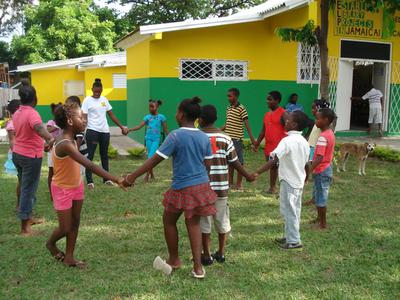
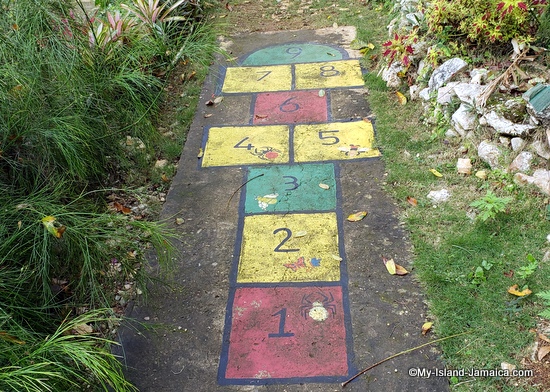
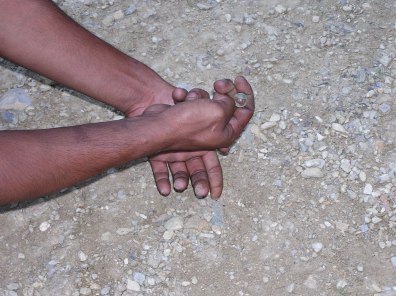














New! Comments
Have your say about what you just read! Leave me a comment in the box below.